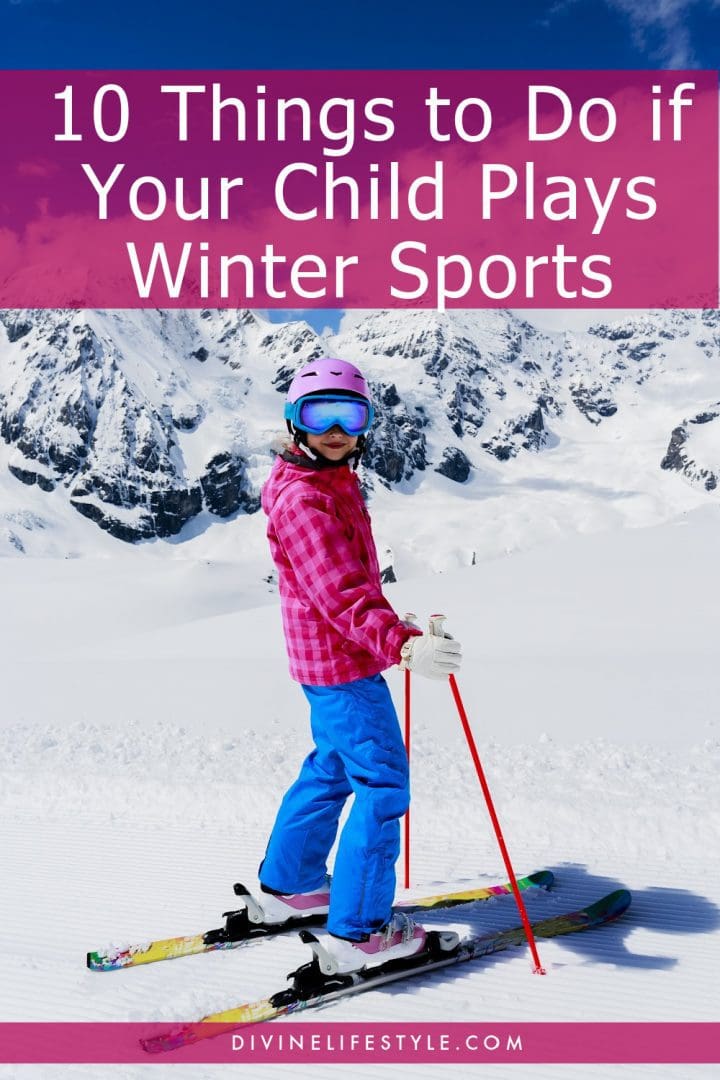Things to Know Before Starting Nursing School
Things to Know Before Starting Nursing School There will come a time in everyone's life when they need to consider what they are going to do for their career. Perhaps that time is when...
Sports are an excellent way for kids to get exercise and make new friends. However, as the weather gets colder, you want to be prepared for seasonal activities. Here are 10 tips for having a successful winter season. We hope that this Winter Sports for Kids Preparation Checklist post inspires you.

It can be hard to keep up with game times. Use a calendar app to help you better manage your child’s schedule. For example, Google Calendar can ensure everyone is on the same page. Be sure to mark the games, and practice times, book ski lessons, and any team events. You can also use the calendar to set goals or add events from your Gmail account. Having the information all in one place ensures you don’t double-book or forget things.
The gear your child will need depends on their winter sport. However, it is important to plan ahead of time. Start thinking about what they need in the fall to prevent any last-minute scrambling, and talk with your child’s coach to see exactly what is required. Ensure they have the proper protective gear, such as a helmet, mouth guards, or knee pads, as well. Check that these items fit properly before the season begins. If you have items from last year, have your child try them on. Also, communicate the importance of wearing safety equipment to your kids.
Often winter sports come with bulky gear, such as skis. Therefore, you should designate an area in your home to drop off their equipment after practice to prevent clutter. This also helps your kids easily find their supplies before a game. Consider storing items in your garage, entryway, or hall closet. These spots are convenient and keep things hidden. It’s also a good idea to place equipment in plastic storage bins for better organization.
Sports can take up a lot of your child’s time, making it harder to gather for family meals. However, these are important for creating lasting memories and provide an excellent time to learn what is going on in your kid’s life. Plus, it can strengthen your relationships and encourage healthy eating habits. Put your phones away so you can connect. When running around between practices and games, you may have less time for meal planning. Try using an app to make life simpler.
Going back and forth from practices and games takes lots of time. Between work and your other obligations, you may not always be available. Having your kids carpool with other children on the team can free you up and allow your children to be with their friends. It’s also a good way to reduce your carbon footprint. Try to get all parents involved by creating a schedule and rotating the driver each week.
You want your child to be protected when the temperatures drop. Dressing in layers will help keep them warm. Consider having them wear an athletic long-sleeved shirt under their jersey, as well as sweatpants. Look for material made from merino wool and synthetic fabric, which are water-resistant. Remember that you don’t want to overdo the layering since they still need to move freely.
Kids move around a lot and can stay warm during gameplay, but they aren't as active when sitting on the sidelines. Before the game, remind them to use their breaks to get up and move. Simply walking or jumping around will help keep their blood flowing.
Make sure your child has a warm winter coat, gloves, and a hat. If your kid is skiing or snowboarding, you can bring an extra jacket to put on after they have competed. This way, they aren’t stuck wearing wet clothing for the rest of the event.
https://divinelifestyle.com/7-ways-to-support-healthy-relationships-with-your-children/
Invest in heated equipment to help the team stay warm. Tents or portable units can make a colder game more enjoyable for both you and your kids. Plus, their siblings may be able to join, as well. Temporary windshields are also suitable for protecting your child. These can be a DIY project using household items.
Handwarmers can help keep your children’s fingers from freezing. You can place them in their mittens, boots, or sneakers to keep their extremities warm. Remember that direct skin contact can cause burns, so place warmers on the outside of the gloves’ inner lining. Be sure your child wears socks with their boots. Since hand warmers are small, consider bringing extras for the rest of the team.
Attending your child’s games can be a fun bonding activity, although winter activities have their challenges. Review these tips before your child’s sport begins to ensure a safe, fun, and warm season. We hope that this Winter Sports for Kids Preparation Checklist post inspires you.
Teaching Kids to Be Good Digital Citizens and Be Internet Awesome
Pingback: 3 Tips for Moms to Function When Recovering From an Injury
Pingback: Sports Journalism Degree